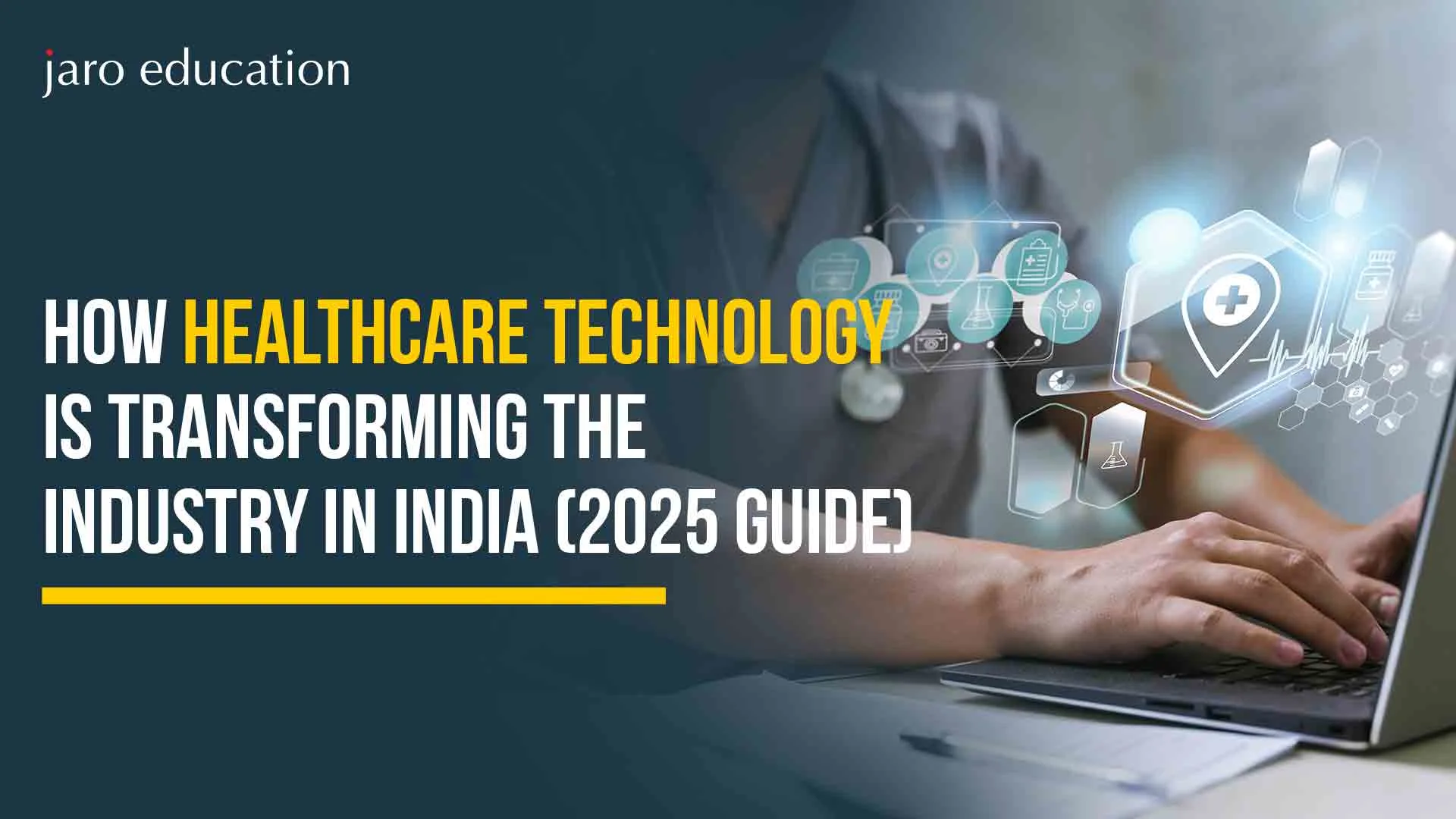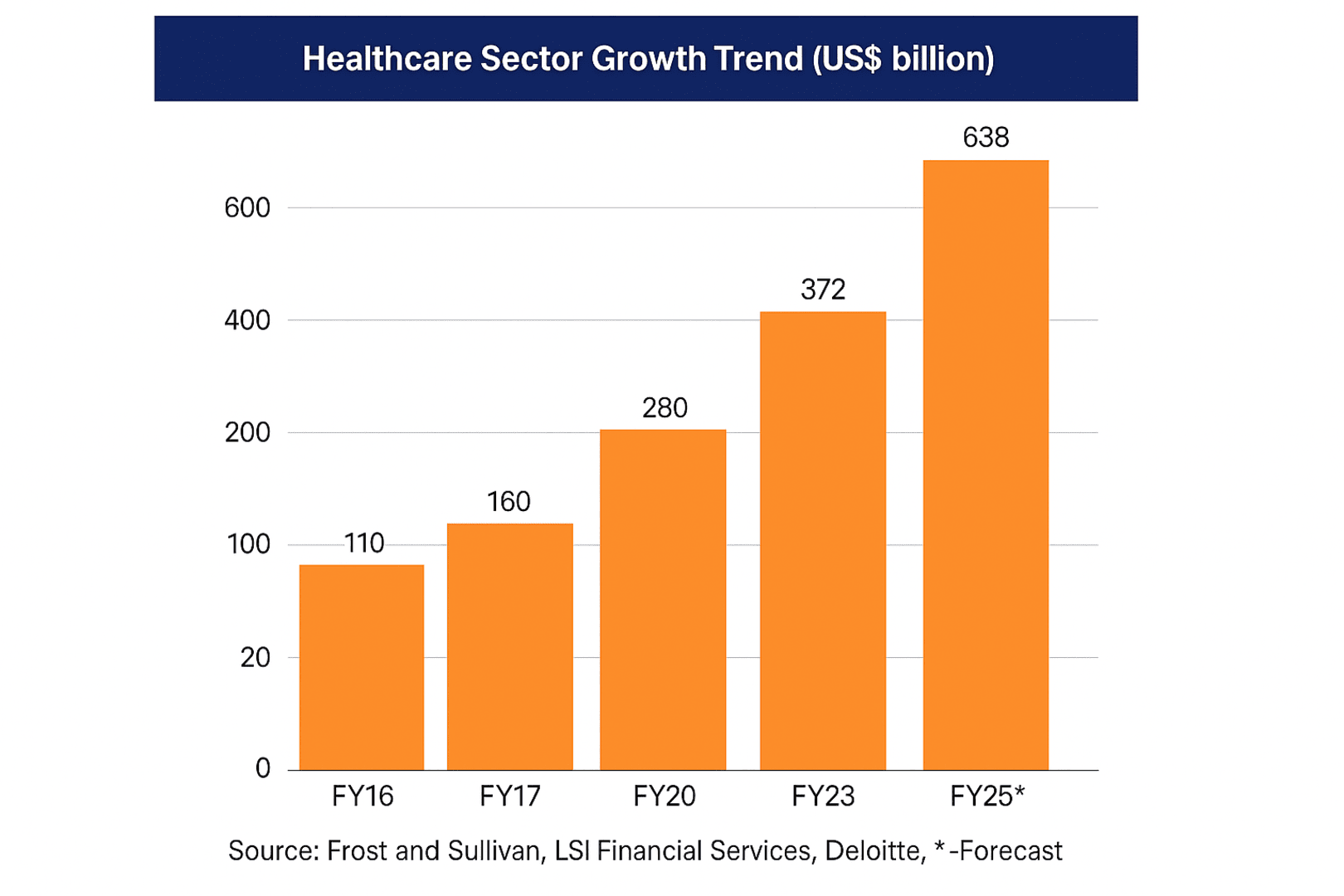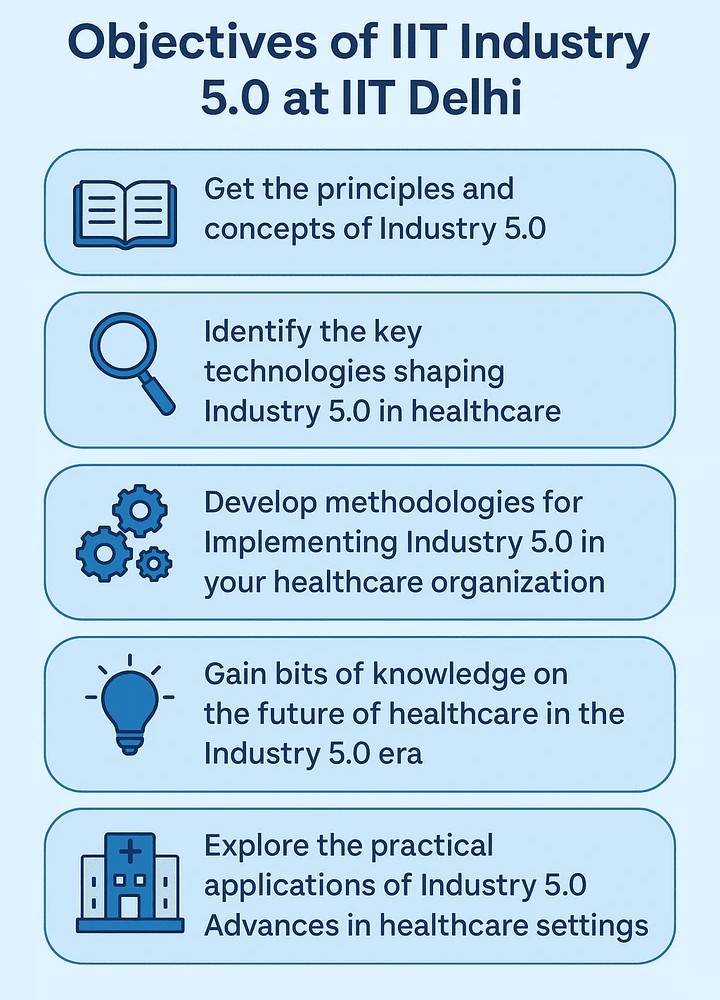How Healthcare Technology Is Transforming the Industryin India (2026 Guide)

Table Of Content
- Healthcare Industry Trend Forecast for FY25 and Beyond
- How Technology is Running the Healthcare Field?
- AI Technology Collaboration With Healthcare Industry Trends
- How to Develop Skills and Education
Healthcare Industry Trend Forecast for FY25 and Beyond
The healthcare industry in India advanced its sound improvement in FY23 and reached a value of US$ 372 billion, driven by both the private sector and the government. As of FY24, the Indian healthcare division is one of India’s greatest sectors, as it employs a total of 7.5 million individuals. Development in telemedicine, virtual collaborators, and data analytics is expected to provide 2.7-3.5 million unused tech businesses.
How Technology is Running the Healthcare Field?
What is healthcare technology?
Healthcare technology acts as restorative gadgets, programs, equipment, IT frameworks, artificial intelligence (AI), and more, are designed to improve the quality of healthcare or support healthcare providers and organizations
Healthcare innovation applications
From gigantic symptomatic imaging scanners to minor wearable sensors, innovation is a necessary part of cutting-edge healthcare. In addition to unused medications and restorative strategies, innovation has moved forward numerous healthcare trade forms as well. Numerous individuals have come to appreciate the comforts of planning arrangements online, getting to test results and records with fair a few clicks, or sending questions to their suppliers through e-mail or text.
AI Technology Collaboration With Healthcare Industry Trends
Healthcare technology’s employment is unending. Healthtech is being actualized in everything from clinic regulatory forms to cancer inquiry and surgery in arrange to improve productivity all through the industry and make the quiet experience as effortless as possible.
The recent AI technology trend in healthcare is the use of AI in Echocardiography.
Administrative Healthtech
An entire have of program instruments and applications makes it less demanding for healing centers to handle their developing regulatory workloads. Fake insights are making a difference in authoritative groups, streamlining understanding streams by doing everything from precisely calculating holdup times to forecasting top active hours for staff planning. In the meantime, apps are asking patients preparatory questions and prioritizing plans so specialists can utilize their time more efficiently.
Healthcare Innovation for Surgery
As you studied this, robots are helping with an assortment of operations, from minor non-invasive methods to open-heart surgery. These mechanical surgical colleagues come in all shapes and sizes, extending from the minor bot that slithers on the surface of the heart to a mammoth arm that acts as an additional set of hands amid strategies.
While robots aren’t intended to disrupt the workplace, virtual and augmented reality are positively impacting healthcare. These technologies enable doctors and specialists to improve their performance in crucial tasks such as practicing new surgical techniques and providing clearer explanations of procedures to patients.
Determination and treatment
Using AI to prepare information, like restorative pictures, and create disease models can possibly offer assistance to clinicians to make analyses with more accuracy. For illustration, later work from IBM Inquire about has shown that AI can be utilized to recognize and translate brain activity patterns in MRIs to track the movement of neurodegenerative diseases, such as Huntington’s disease.
Medical imaging
Computers and AI models are especially profitable in therapeutic imaging since they can offer assistance in turning pictures into numbers and distinguishing patterns. These advancements can offer assistance to radiologists and other clinicians to oversee the inconceivably huge volume of pictures they have to review by recognizing high-value discoveries and bringing peculiarities to their attention.
Clinical research
Life sciences organizations are utilizing innovation to change how clinical trials are performed. Shrewd gadgets, telehealth visits, and sensors are being utilized to bolster decentralized trials that make information collection more effective and helpful for the individuals who take an interest.
How to Develop Skills and Education
Dreaming of a healthcare career in the IIT sector, leveraging new technology to improve treatment and diagnosis? The Executive Programme in Healthcare for Industry 5.0 at CEP, IIT Delhi, is now accepting applications for its new batch. This programme offers a holistic curriculum covering Cloud Computing, Cyber-physical Systems, and Sensing, Actuating, and Communicating Technologies to advance careers in the healthcare industry.
What are the Jobs in Healthcare Industry?
Take The Next Step With Jaro Education
Do not take the risk with your career. Be career-ready and get the best career counselling with the supportive university from Jaro Education’s expert counsellors.
Why Jaro Education counselors?
Jaro Education is an online higher education and upskilling company focusing on executive education; it serves as a bridge between the world’s top universities and institutes to develop online and healthcare technology-driven programs. It offers a good mix of online executive education programs in domains like Doctorate & Ph.D. Analytics & Data Science, Management, Finance, etc., provided by the best national and international institutions to meet the requirements of professionals who work. The purpose of Jaro Education is to support the growth of entrepreneurs and professionals at all levels, from entry-level to C-suite, through world-class executive education programs. Jaro Education has provided top-tier career counseling to over 350,000 learners. Your success could be next!
Conclusion
India’s healthcare segment is greatly broadened and is full of opportunities in each segment, which incorporates suppliers, payers, and restorative healthcare technology.
Country is an arrive full of opportunities for players in the therapeutic gadgets industry. The nation has moreover gotten to be one of the driving goals for high-end demonstrative administrations with colossal capital investment for progressed diagnostic offices, catering to a more prominent of the population.
So, do not miss the chance to enroll in the IIT Delhi course Executive Programme in Healthcare for Industry 5.0.
Frequently Asked Questions
Find a Program made just for YOU
We'll help you find the right fit for your solution. Let's get you connected with the perfect solution.

Is Your Upskilling Effort worth it?

Are Your Skills Meeting Job Demands?

Experience Lifelong Learning and Connect with Like-minded Professionals



